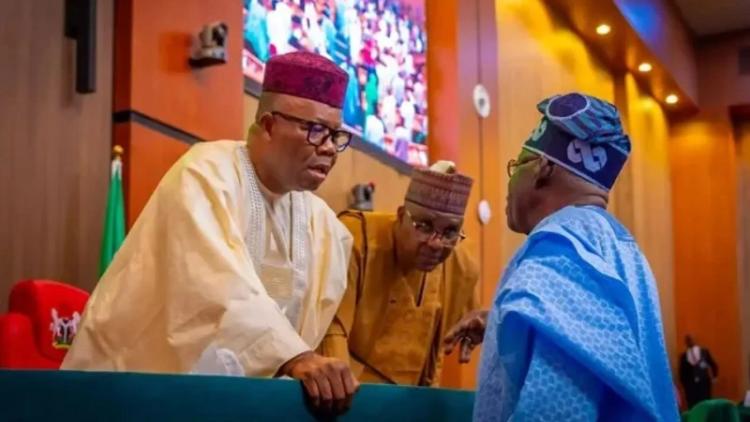The National Assembly has approved President Bola Ahmed Tinubu’s request to borrow $2.35 billion (₦3.54 trillion) to finance part of Nigeria’s 2025 budget deficit.
The approval, granted by both the Senate and House of Representatives on Wednesday, followed the adoption of reports from the committees on local and foreign debts. Lawmakers also endorsed the President’s plan to issue a $500 million sovereign sukuk in the international capital market to fund key infrastructure projects and diversify the country’s financing sources.

In his earlier correspondence to the legislature, President Tinubu explained that the borrowing was part of the provisions in the 2025 Appropriation Act, which earmarked ₦9.28 trillion in new loans to bridge the fiscal gap — including ₦1.84 trillion ($1.229 billion) in new external borrowing.

The President further sought approval to refinance a $1.118 billion Eurobond issued in 2018 and due for maturity on November 21, 2025, noting that the move was crucial to “avoid default” and comply with global best practices in debt management.
According to the President, the total external capital to be raised — $1.229 billion in new borrowing and $1.118 billion for refinancing — brings the total to $2.347 billion.

Chairman of the Senate Committee on Banking, Insurance and Other Financial Institutions, Senator Adetokunbo Abiru (APC, Lagos East), clarified that the borrowing would not add to Nigeria’s debt load, describing it as a compliance measure already captured in the budget.
“This is essentially a compliance issue, as the 2025 budget has already included the borrowing in its deficit financing. The refinancing component will ensure that Nigeria meets its Eurobond obligations,” Abiru said.

Similarly, Chairman of the Senate Committee on Interior, Senator Adams Oshiomhole (APC, Edo North), supported the loan request, noting that borrowing is not inherently bad if directed toward productive investments.
“There’s nothing wrong with borrowing, provided it is structured properly and used to tackle key challenges like unemployment and infrastructure deficits,” Oshiomhole said.
The approval represents a major step in President Tinubu’s plan to strengthen Nigeria’s fiscal position ahead of the 2025 financial year, as the government continues to navigate declining revenues and rising debt-servicing costs.




